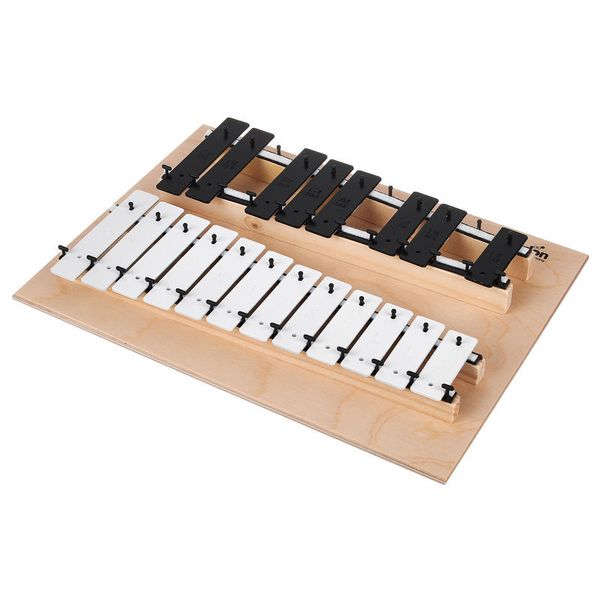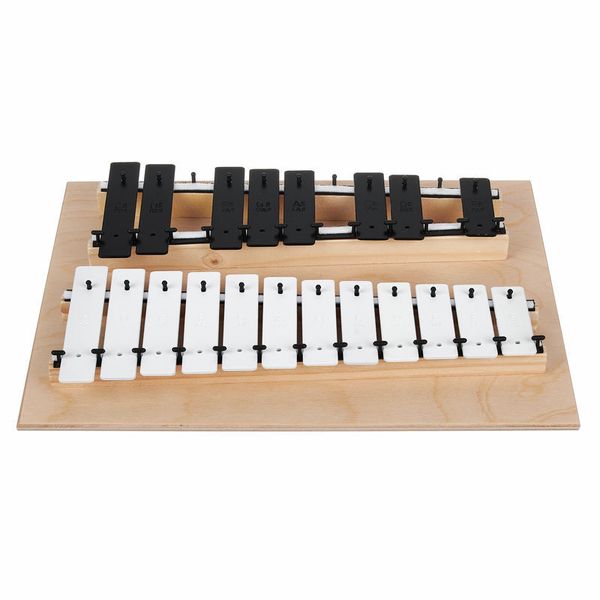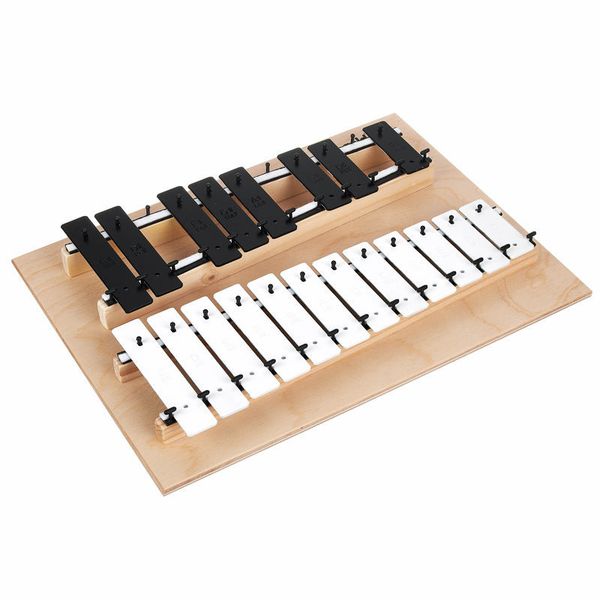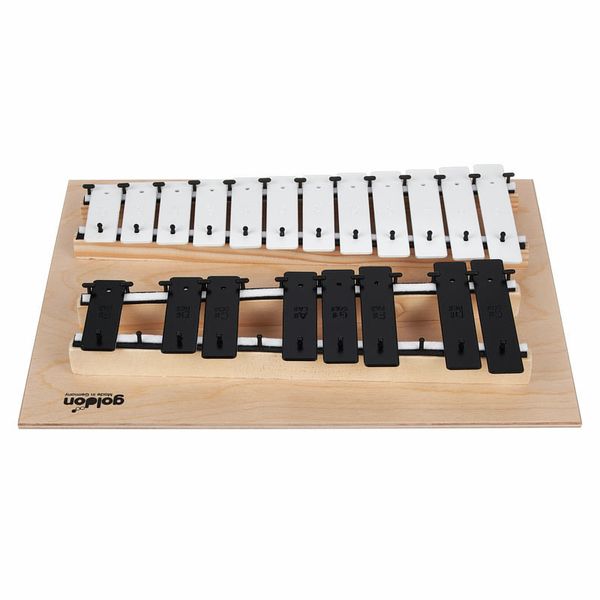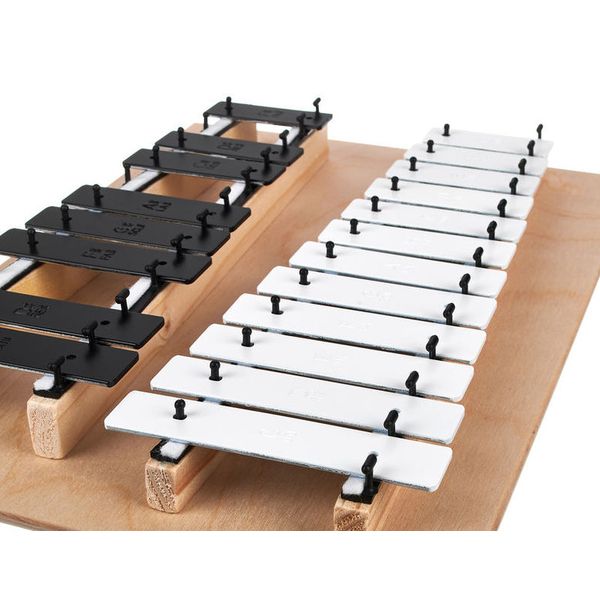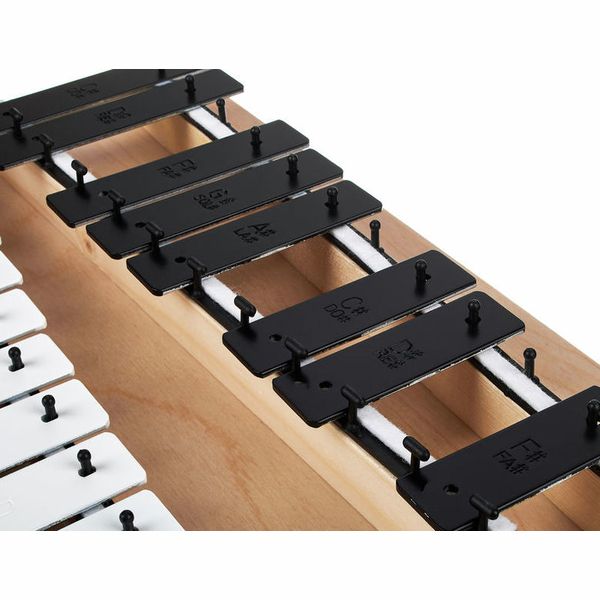... und trotzdem wäre Raum für minimale Verbesserungen da. Zunächst fällt das einfache Holz auf: Fichte, nicht resonant, ist dafür aber auch nicht gedacht. Dann die Klangstäbe, die nur von der Oberseite lackiert sind, was aber auch nicht entscheidend ist. Entscheidend ist der Klang, und bei diesem Glockenspiel ist das ein zweisitziges Pferd.
- Alle Klangstäbe bis auf zwei musste ich nachstimmen, weil sie entweder zu hoch oder zu tief waren.
- Den Klang beeinflusst außerdem eine Entscheidung seitens Goldon, die das Ausklingen der Töne verkürzt. Die Stäbe liegen auf zwei (weißen) Filzstreifen auf, die die Schwingungen dämfpen, weil sie näher zur Mitte des Klangstabes, seinem "Schwingungs-Zentrum" liegen. Manche finden dies wünschenswert, manche nicht, jedoch ist die Auführung nicht gut gelungen, weil viele Klangstäbe auch an den härteren schwarzen Kunststoffnupsis scheppern und ungewollte Nebengeräusche erzeugen.
- Möchte man außerdem jenseits von C-Dur darauf spielen, fällt auf, dass der Abstand zwischen den beiden Bänken für schwarze und weiße Klangstäbe auseinander gehen, anstatt gleichbleibend möglichst nah. Dies erschwert das Spielen unnötig.
Dies alles stört mich gerade nicht, da ich ausschließlich die Klangstäbe für den versuchsweisen Eigenbau eines Glockenspiel-Klaviers verwenden möchte, und die Klangstäbe selbst haben einen schönen Klang mit nicht zu ausgeprägten Schärfen (oder ich bin schon taub für die hohen Frequenzen...).
Fazit: Das Goldon-Glockenspiel ist potenziell ein Konkurrent für Sonors NG30. Sonor bringt jedoch ab werk ein handgestimmtes Musikinstrument, das klanglich und verarbeitungsmäßig Profi-Ansprüchen genügt und damit den dreifachen Preis rechtfertigt. Dies bietet das Goldon-Glockenspiel nicht, will es auch gar nicht, meiner Meinung nach könnte es jedoch mit nur minimalen Anpassungen ein viel besseres Instrument sein, als es so ist.



